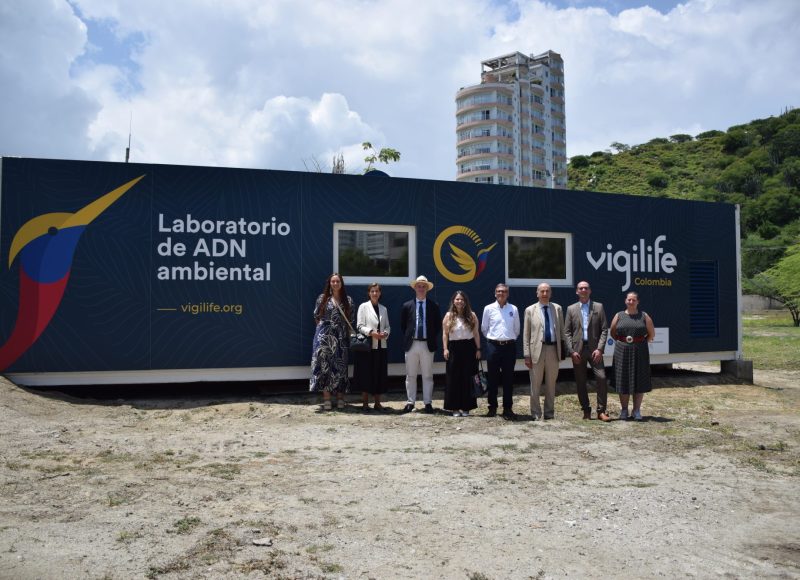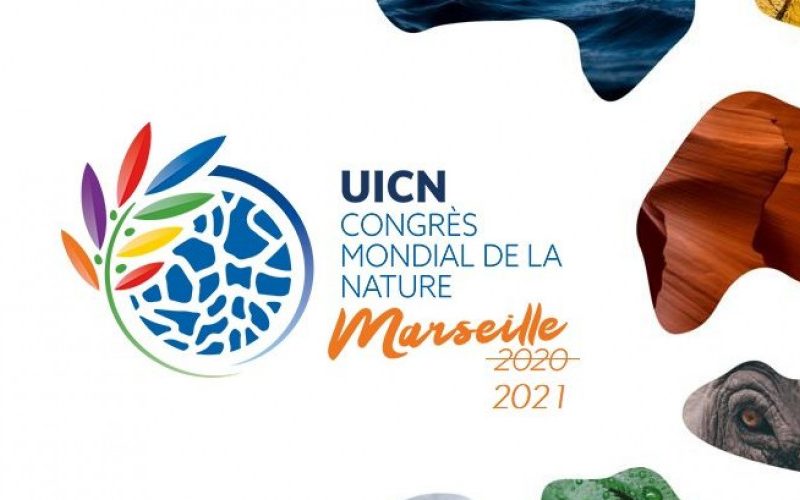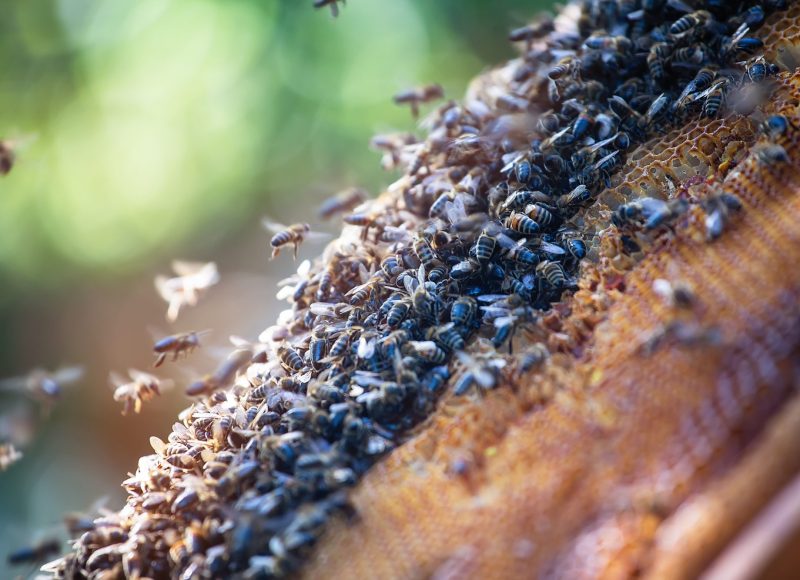
OUR ORGANISATION
A multi-stakeholders platform to support partnerships in the field of science, technology and applied management, for the benefits of the territories.
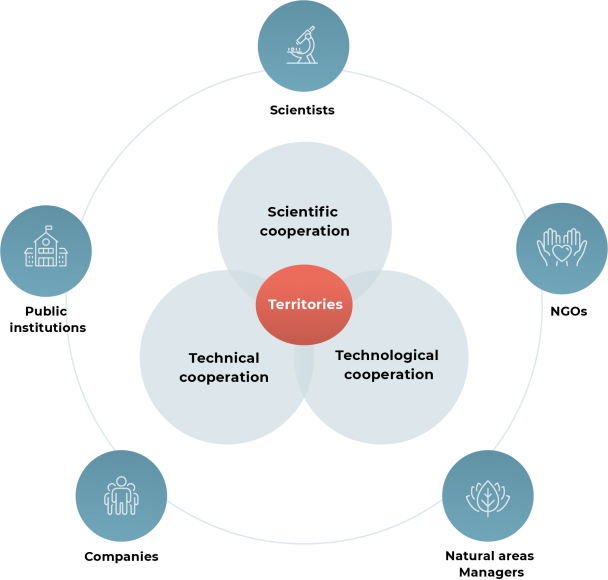
The Global Life Observatory – Vigilife – is organised as an international alliance of public and private partners united around a mission, common goals, and shared operating procedures, formalized in the Vigilife Observatory Charter. Its governance is guaranteed on two levels; at the level of the territories where the partners collaborate together, and through a Secretariat as a support Unit, fostering the cooperation between the partners. The Secretariat organises the network of partners and provides them with services adapted to achieve the common objectives of the Vigilife Observatory in the targeted territories. The cooperation developed follows a step-by-step process designed to meet the needs of the partners according to the biodiversity issues identified locally and nationally. The entire operation of the Vigilife Observatory is based on the principle of cooperation between its partners, the exchange of expertise, methods and tools, and shared actions.


An alliance for the protection of life
The creation and deployment of Vigilife on an international scale is the result of numerous cooperations, especially scientific and technological, achieved thanks to the commitment of people from public institutions, companies, non-governmental organisations and scientific research, including: Camille ALBOUY (IFREMER), Benjamin ALLEGRINI (SPYGEN), Francisco A. ARIAS ISAZA (INVEMAR), Pierre BOISSERY (Agence de l’eau RMC), Sébastien BROSSE (Université de Toulouse), Philippe CHAVAREN (Vinci), Arnaud COLLIN (Vigilife), Jean-Baptiste DECOTTE (Kodama), Delphine DEFRANCE (ALKIOS), Tony DEJEAN (SPYGEN), Julie DETER (Andromède Océanologie), Geneviève FERONE (Prophil/Casabee), Coline GABORIAUD (SPYGEN), Sylvie GILLET (EpE), Marie-Cécile GRISARD (IAGF), Nacim GUELLATI (Out of the blue), Mickael HEDDE (INRAE), Abigail HEHMEYER (WWF US), Jelger HERDER (RAVON), Régis HOCDE (IRD), Florian HOLON (Andromède Océanologie), Pauline JEAN (SPYGEN), Pierre JORCIN (SPYGEN), Jean-Luc JUNG (UBO / MNHN), Benjamin LINARD (SPYGEN), Albane LOISEAU (Ekores), Manuel LOPES-LIMA (CIBIO/UICN), Arnaud LYET (WWF US), Frédéric MACIA (MERIDA Consulting), Stéphanie MANEL (EPHE), Claude MIAUD (EPHE), Tristan MILHAU (SPYGEN), Séverine MILLET (Nature Humaine), Cécile MONIERE (LICA), Baptiste MORIZOT (Université d’Aix-Marseille), David MOUILLOT (Université de Montpellier), Baptiste MULOT (Beauval Nature), Robin NAIDOO (WWF US), Loïc PELLISSIER (ETHZ / WSL), Amélie PIANO (Spicy Motion), Andrea POLANCO F. (INVEMAR), Didier PONT (BOKU Vienna), Nicolas POULET (OFB), Franck PRESSIAT (CNR), Vincent PRIE (SPYGEN/MNHN), Bruno RAKEDJIAN (Ministère de la Transition écologique), Nicolas RENAULT (Spicy Motion), Renaud REYNES (Naturalia Environnement), Damien ROCHETTE (Here We Com), Mathieu ROCLE (CNR), Loic SANCHEZ (Out of the blue), Raphaël SEGUIN (Out of the blue), Wilfried THUILLER (CNRS), Alice VALENTINI (SPYGEN), Audrey VERMEULEN (LICA), Laurent VIGLIOLA (IRD), Vincent VIGNON (OGE), Estelle ZHONG MENGUAL (Sciences Po).
The Vigilife Secretariat – currently being set up – is under the guidance of a Coordination Committee composed of: Albane LOISEAU (ALKIOS), Tony DEJEAN (SPYGEN), David MOUILLOT (Université de Montpellier), Baptiste MULOT (Beauval Nature), Loic PELLISSIER (ETH Zurich / WSL), Franck PRESSIAT (CNR). Its animation is provided by Arnaud COLLIN (in charge of the Vigilife prefiguration).
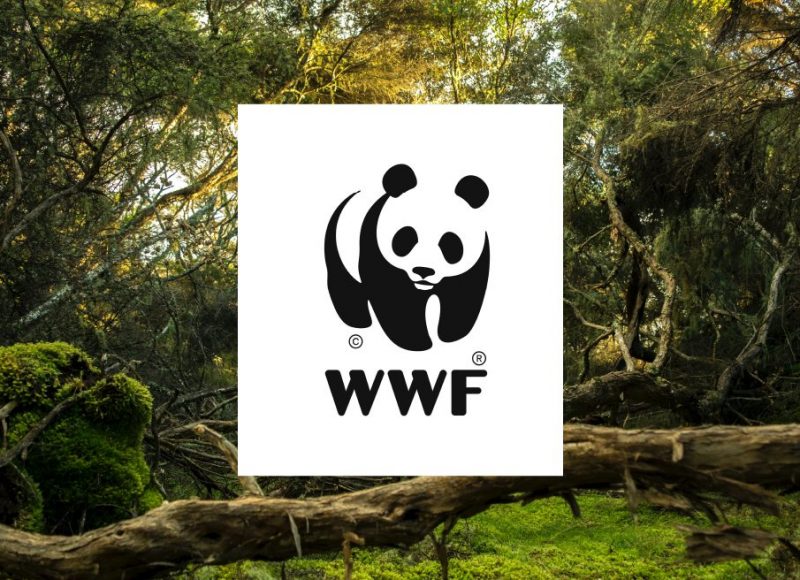
“As a science-based organization, WWF believes that the Vigilife initiative will open a new era of global biodiversity monitoring. WWF has worked with Vigilife for several years to optimize eDNA technologies to advance our ability to detect rare and threatened species in difficult environments. eDNA technology will help us to identify new and cryptic species, setting the stage for a more complete inventory of global biodiversity. Additionally, this approach could be used as an early warning system for the detection of biodiversity decline, invasive species, or species that need immediate protection.”
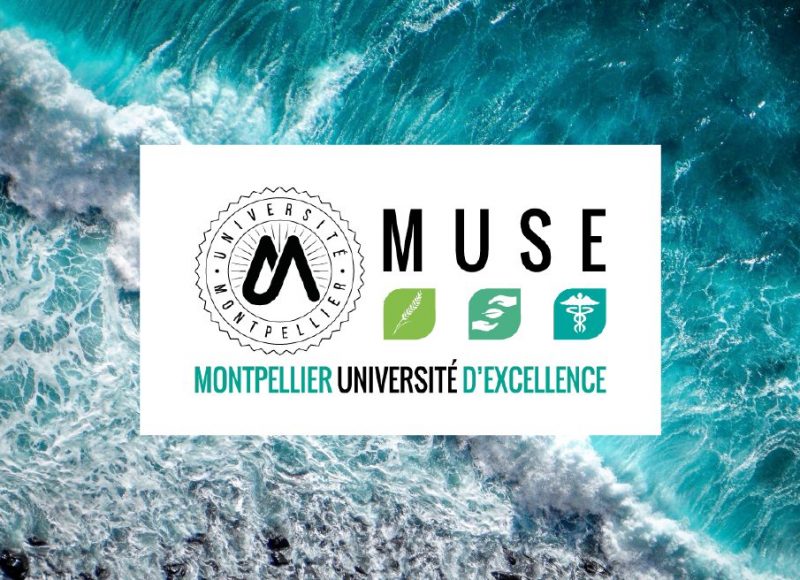
“The University of Montpellier, in the context of the I-SITE MUSE (Montpellier UniverSité d’Excellence) project, which since 2017 has assembled sixteen research and teaching establishments to tackle three major challenges – food safety, environmental protection and human health – has formed an internationally recognized center in the field of ecology. The partnership with Vigilife and its members is fully in line with this objective of scientific excellence and technological innovation for the benefits of life, as confirmed by the numerous publications resulting from joint work carried out recently in various parts of the world. A new step in this collaboration will soon be taken with the launch of a joint public-private laboratory between the University of Montpellier and the company SPYGEN within the framework of the Vigilife alliance.”
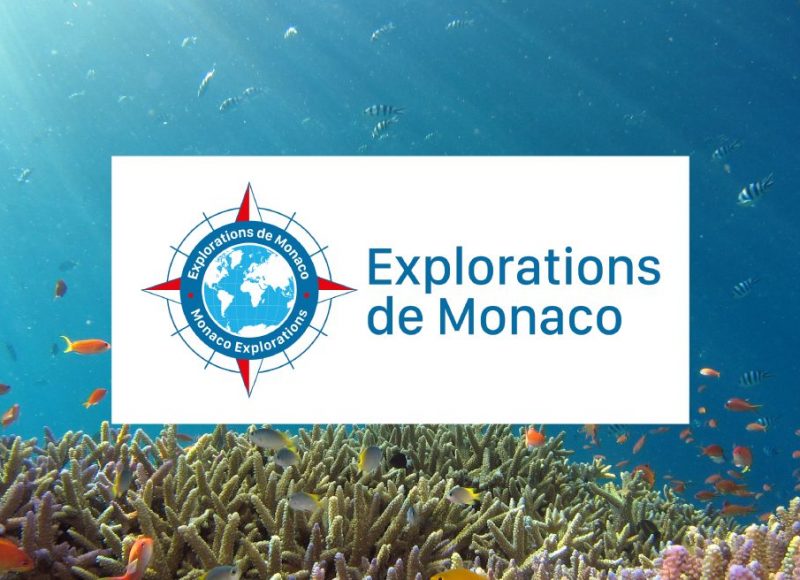
“Since 2017, the international scientific team “Megafauna”, a member of the “Vigilife” alliance, has carried out numerous operations as part of the expeditions organized or supported by the “Monaco Explorations” – a platform serving the commitment of H.S.H. Prince Albert II of Monaco for the Ocean. These actions have taken place in many countries and regions of the world including Colombia, Guadeloupe, Martinique, the western Mediterranean, New Caledonia… They have increased the knowledge of global biodiversity, both by monitoring highly sensitive marine habitats and by discovering rare species, using innovative technologies such as environmental DNA. The partnership between “Monaco Explorations” and the members of the “Vigilife” alliance is opening up new horizons in the knowledge of the biosphere and the search for new and more effective solutions to protect marine biodiversity.”
Gilles Bessero, Director of Monaco Explorations
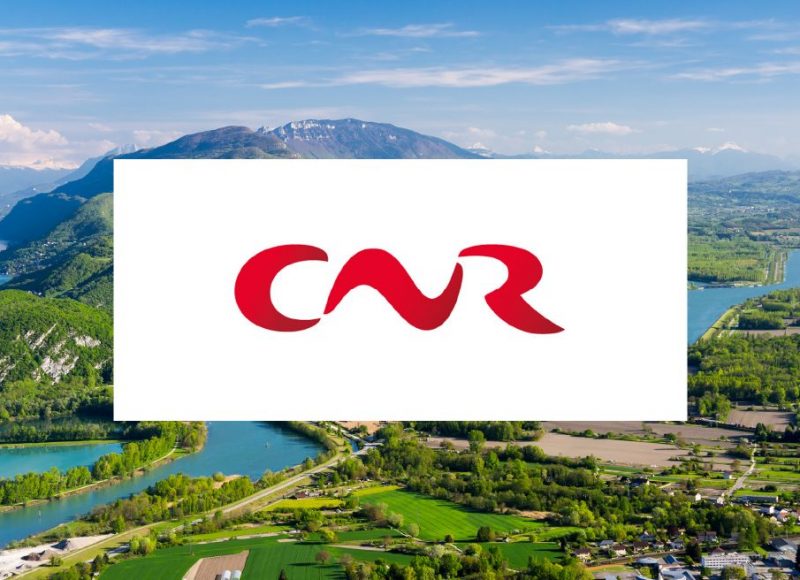
“The Compagnie Nationale du Rhône (CNR) is the concessionary and manager of the Rhône River in France from the Swiss border to its delta in the Mediterranean sea. As a “pilot river”, the Rhone river was an opportunity to scientifically validate the eDNA methods deployed within Vigilife toward a global application. The results show that in one eDNA monitoring campaign targeting fish fauna, it is possible to detect as many species as in ten years of monitoring by traditional methods. CNR’s commitment to the Vigilife Alliance illustrates its involvement for Biodiversity and Innovation alongside local stakeholders, and in particular through its participation in the project of monitoring by eDNA of the entire Rhône river, from its spring (glacier in Switzerland) to the Mediterranean sea. Due to climate changes, all over the world, major rivers are facing common challenges. By experimenting innovative technologies including eDNA on the Rhône river – as a case study – CNR contributes to a better understanding of this river, but also to develop methodologies that will benefit other rivers in the world. It is CNR’s belief that a better knowledge of rivers and their biodiversity offers the keys to better preserve it.”
Elisabeth Ayrault, Chairwoman and CEO of CNR
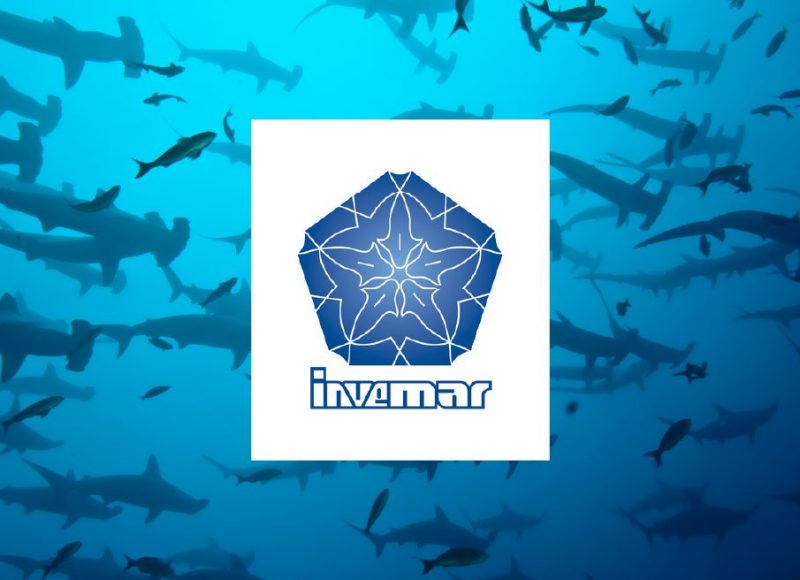
“Colombia is among the “megadiverse” countries considered as the richest in biological diversity on the planet and which must be the object of exceptional efforts in the knowledge and protection of species and ecosystems. INVEMAR has been collaborating since 2018 with members of the Vigilife alliance on numerous pilot studies in various locations in Colombia. In order to accelerate the efforts of inventories and monitoring of marine and terrestrial biodiversity, INVEMAR and SPYGEN, members of the Vigilife alliance, are carrying out an ambitious transfer of technology and expertise of environmental DNA analysis between France and Colombia, with the support of the French government. We are convinced that this first worldwide experience of scientific, technological and economic cooperation in favor of biodiversity will open new cooperation through the Vigilife alliance with other “megadiverse” countries.”
Francisco A. Arias Isaza, Director of INVEMAR
OUR MISSION
Using innovation to enhance knowledge and the protection of life.
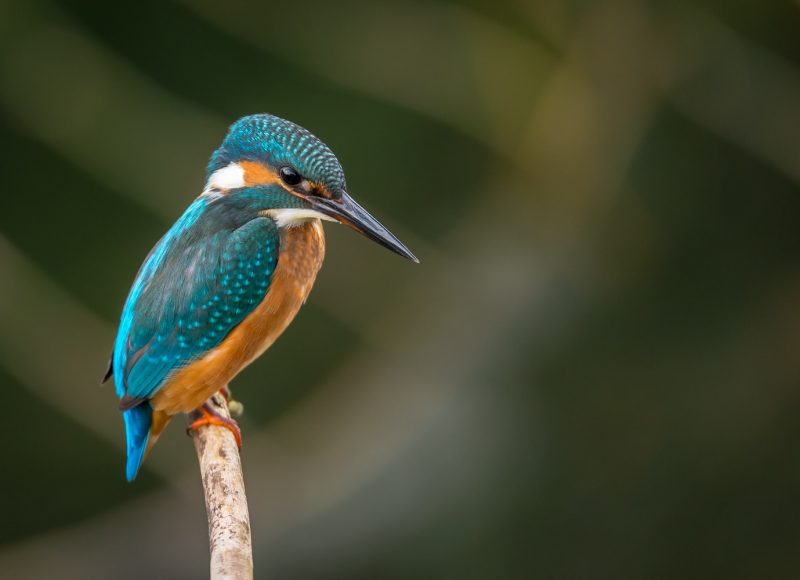
OUR VISION
To face the rapidity and the importance of biodiversity loss, a revolution in how we monitor and consider the living world is necessary. In order to meet this worldwide challenge, the Vigilife alliance is developing a “Global Life Observatory” using environmental DNA (eDNA) technologies.
Thanks to these innovative approaches, it is now possible to study all biodiversity (from microscopic bacteria to the largest mammals) from a single sample of water or soil, and improve the monitoring of threatened, invasive, cryptic or invisible to the naked eye species (soil biodiversity, pathogens, etc.). Major environmental issues, such as climate disruption, pollution, vanishing species and biological invasions, all require actions coordinated worldwide and over the long term. Vigilife offers each partner standardised eDNA methods, scientifically validated, so that data collections can be compared effectively across large areas and over long periods of time.
Vigilife Maps cartography platform allows data and biodiversity indicators to be quickly collated, managed, analysed and shared with researchers, environmental managers, decision-makers and the general public. Thus, each contributor and beneficiary will be able to make even more informed decisions to support biodiversity and can become a real guardian of the living world and its state of health.
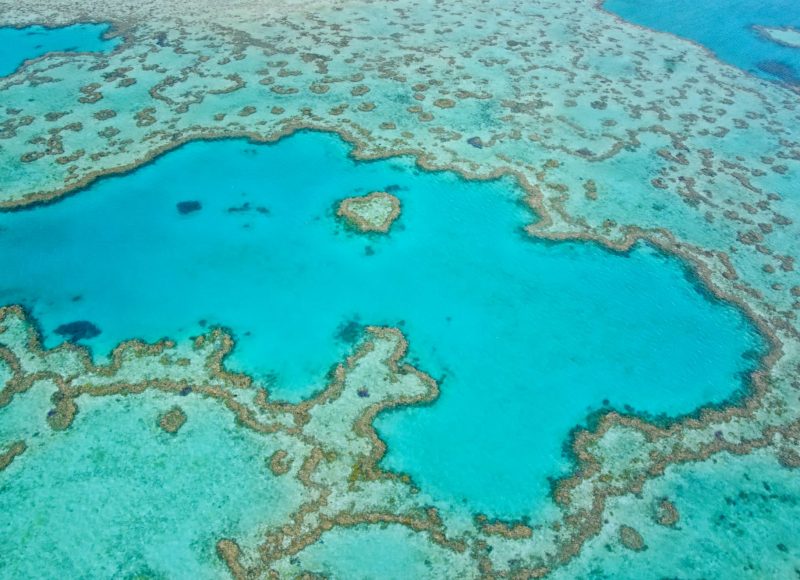
OUR FOUNDING VALUES
Innovation
Developing and rolling out innovative technologies to better understand and monitor biodiversity while limiting the environmental impact and implementation costs.
Stringency
Incorporating the highest standards in terms of quality, safety and performance in data collection and management.
Sharing
Rapidly releasing scientifically approved technologies and knowledge on a worldwide scale.
Commitment
Setting up an international alliance of committed public and private partners so that Vigilife can be deployed quickly and on a large scale.
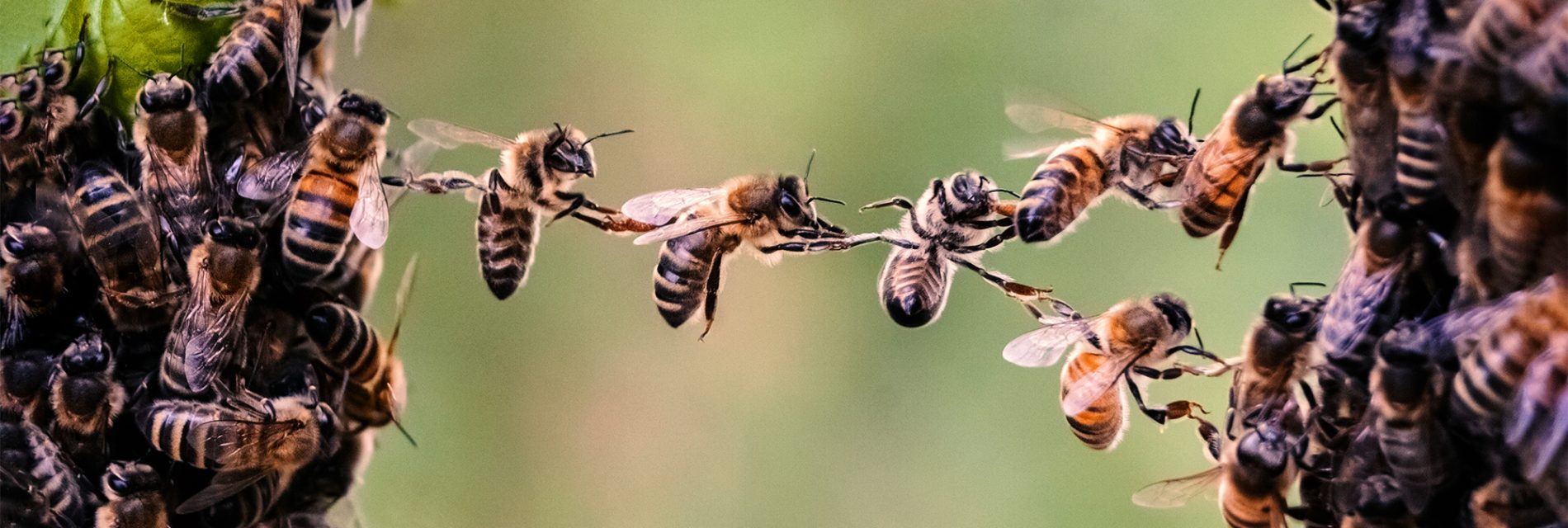
 Prevent global species decline and improve early detection and monitoring of invasive exotic species and pathogens, focusing particularly on the primary pathways through which they arrive.
Prevent global species decline and improve early detection and monitoring of invasive exotic species and pathogens, focusing particularly on the primary pathways through which they arrive. Analyse and model data gathered on a worldwide scale in order to learn more about biodiversity and better anticipate the impact of global climate change on all living things.
Analyse and model data gathered on a worldwide scale in order to learn more about biodiversity and better anticipate the impact of global climate change on all living things. Bring together committed public and private partners, in order to increase the number of observation sites and enable broader use of the data collected in a spirit of solidarity between actors and territories.
Bring together committed public and private partners, in order to increase the number of observation sites and enable broader use of the data collected in a spirit of solidarity between actors and territories. Decentralise eDNA expertise through the transfer of skills and technology so that every partner can process samples locally and every country can retain control over the use of their genetic resources.
Decentralise eDNA expertise through the transfer of skills and technology so that every partner can process samples locally and every country can retain control over the use of their genetic resources.
 Provide support for public and private bodies, so that they increasingly take biodiversity into account in their activities and inform the general public of its importance and fragility, in order to transform the way human societies look at the living world and their relationship with nature.
Provide support for public and private bodies, so that they increasingly take biodiversity into account in their activities and inform the general public of its importance and fragility, in order to transform the way human societies look at the living world and their relationship with nature. Highlight best practices and inspirational actions that protect living things, particularly those carried out by indigenous peoples.
Highlight best practices and inspirational actions that protect living things, particularly those carried out by indigenous peoples.
